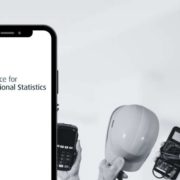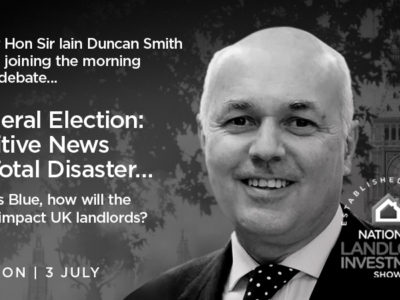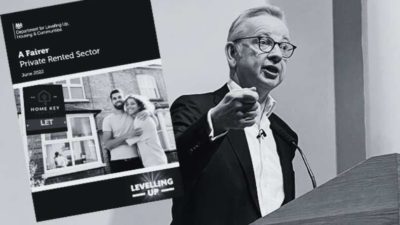- Monthly house price growth rose to +0.5% following a slower start to the year
- Annual rate of growth at +10.8% is the strongest level since June 2007 (+11.9%)
- Average house price reaches another new record high of £278,123
- Squeeze on household finances still expected to weigh on the market this year
Average price: £276,759
Monthly change: +0.3%
Quarterly change: +3.1%
Annual change: +9.7%
The UK housing market shrugged off a slightly slower start to the year with average property prices rising by another 0.5% in February, or £1,478 in cash terms.
This was an eighth successive month of house price growth, as the resilience which has typified the market throughout the pandemic shows little sign of easing.
Year-on-year prices grew by 10.8%, the fastest pace of annual growth since June 2007, pushing the average house price up to another record high of £278,123.
Two years on from the start of the pandemic, average property values have now risen by £38,709 (+16%) since February 2020.
Over the last 12 months alone house prices have gained on average £27,215.
This is the biggest one-year cash rise recorded in over 39 years of index history, Russell Galley, Managing Director, Halifax commented.
Lack of supply continues to underpin rising house prices, with recent industry surveys showing a dearth of new properties being listed, now a long-term trend, Galley continued.
This may be a particular issue at the larger end of the property market.
Over the past year the average price of detached properties (£43,251, +11%) have risen at a rate more than four times that of flats (£10,462, +7%) in cash terms.
Looking ahead, as Covid moves into an endemic phase and almost all domestic restrictions are removed, geopolitical events expose the UK to new sources of uncertainty.
The war in Ukraine is a human tragedy, but is also likely to have effects on confidence, trade and global supply chains.
Surging oil and gas prices are one immediate consequence, meaning that inflation in the UK – already at a 30-year peak – will remain higher for longer.
This will add to the squeeze on already stretched household incomes.
While increases in Bank Rate look likely in the near term, the extent of the rises will depend on how it affects prices and companies’ approaches to pay over the months to come.
These factors are likely to weigh on buyer demand as the year progresses, with market activity likely to return to more normal levels and an easing of house price growth to be expected.
Regions and Nations House Prices
Seven UK areas are now seeing double-digit annual house price inflation, highlighting not only the strength but the breadth of gains across the country.
Wales was once again the strongest performing nation or region, with annual house price growth of 13.8%, largely unchanged since January, with the average property price rising to £207,184.
The South West of England also continues to record big gains.
Annual house price inflation is now up to 13.4%, with by far the strongest quarterly growth (3.5%) of any region (average house price of £293,968).
While there will be a variety of local factors influencing the strength of these respective housing markets, it’s notable that both areas benefit from greater availability of more rural, scenic living which has proven to be so popular amongst buyers throughout the pandemic.
Elsewhere Northern Ireland also continues to record strong price growth, with prices up 13.1% on this time last year, giving an average property value in February of £173,911.
House price growth remains robust in Scotland too.
That said, despite the annual rate of house price growth picking up to 9.2%, remarkably Scotland now has the ‘weakest’ rate of annual growth of any area outside of London, again testament to the strength of house prices right across the UK.
The average property price edged up to £193,777 in February.
As indicated above London remains the weakest performing area of the UK, though the capital continued its recent upward trend with annual house price inflation now standing at 5.4%, its strongest level since the end of 2020.
Housing Activity
HMRC monthly property transactions data shows UK home sales increased in January 2022.
UK seasonally adjusted (SA) residential transactions in January 2022 were 106,990 – up by 5.1% from December’s figure of 101,840 (down 22.2% on a non-SA basis).
Quarterly SA transactions (November-January 2022) were approximately 9.9% lower than the preceding three months (August 2021-October 2021).
Year-on-year SA transactions were 10.6% lower than January 2021 (12.6% lower on a non-SA basis). (Source: HMRC)
Latest Bank of England figures show the number of mortgages approved to finance house purchases rose in January 2022, by 4% to 73,992.
Year-on-year the January figure was 23% below January 2021. (Source: Bank of England, seasonally-adjusted figures)
In the latest RICS Residential Market Survey, a net balance of +16% respondents cited an increase in new buyer demand during January – a fifth consecutive month in positive territory (previously +9%).
New instructions however remain in negative territory for a tenth consecutive month at -8% (-13% previously).
Agreed sales also remain in negative territory, with the latest net balance standing at -4% (compared to -12% previously).
(Source: Royal Institution of Chartered Surveyors’ (RICS) monthly report)
Tom Bill, head of UK residential research, Knight Frank, said:
“We are presumably witnessing the final few months of double-digit house price growth before supply picks up and demand loses some of its lustre.
A lack of stock has been a feature of the UK property market since the stamp duty holiday ended last summer but the shelves are gradually re-stocking, helped by the arrival of the spring market.
Meanwhile, higher inflation and rising mortgage rates will begin to put the brakes on sky-high demand.
It won’t happen overnight but I would expect the return of single-digit house price growth later this year.”
Commenting on Home Counties, Buying agent Simon English, of ‘Simon English Property Search’, said:
“Last month, demand for family homes across the home counties has remained as strong as it was during the peak of the pandemic.
The areas of South West Surrey, Hampshire and West Sussex have thereby seen particularly high volumes of enquiries, which has led to competitive bidding among buyers.
This has often resulted in a best and final offer scenario with agreed prices achieving more than 10% above the asking price.”
Commenting on London, Guy Gittins, CEO of Chestertons, said:
“London is seeing a substantial uplift in buyer demand – well beyond the previous record numbers of last year.
Although the suburbs remain a popular choice, the volume of buyer enquiries for areas such as Richmond or Kew has remained at last year’s levels.
If 2021 was defined by a race for space and people moving out to the suburbs, 2022 is seeing an absolute boomerang effect with house hunters rushing back into the capital; a change in buyer behaviour that has been accelerated by the return of office workers and international travellers.”
Tomer Aboody, director of property lender MT Finance, says:
“The biggest rise in house prices since 2007 is further proof of lack of supply, with buyers pushing themselves and stretching to their maximum borrowing capacity in order to secure their new home.
Low interest rates are fuelling and encouraging buyers to borrow, before further rate increase come.
With higher rates and cost of living on the rise, these could trigger a turn in the market in the near future.”
Jeremy Leaf, north London estate agent and a former RICS residential chairman, says:
“Prices may be continuing to rise to record levels but looking behind the numbers we are finding in our offices that this is more as a direct result of lack of choice, which is also compromising the number of transactions.
Prices are unlikely to continue their mighty gains as affordability is becoming increasingly stretched, with events in Ukraine likely to send inflation and especially energy costs even higher.”
Mark Harris, chief executive of mortgage broker SPF Private Clients, says:
“With house prices continuing to rise, how big a mortgage a borrower can take on is a growing issue.
Mortgage pricing remains incredibly dynamic, with lenders rapidly changing once they find themselves top dog, offering the most competitive products.
Borrowers must move quickly to secure a rate even though expectations of an interest rate rise at the Bank’s next meeting are being pared back given the Russia/Ukraine conflict and its direct and indirect effects on the UK economy.”
Walid Koudmani, chief market analyst at financial brokerage XTB comments:
“House prices rose at the fastest annual pace since 2007 and reached a new record high according to today’s Halifax HPI report with monthly house price growth rising to +0.5% following a slower start to the year.
While the annual rate of growth increased by +10.8% and reached the strongest level since June 2007, the impact on household finances is still expected to weigh on the market this year as rising inflation and increased costs could undermine the post pandemic economic recovery and slow down the housing market significantly as demand becomes severely impacted.”
Comment from Ross Counsell, chartered surveyor and director at GoodMove, on today’s Halifax House Price Index:
“According to today’s Halifax HPI, UK average house prices have increased by 0.5% since the previous month, and now stand at an average £278,213. The annual rate of growth stands at 10.8%, the strongest level of growth since June 2007.
We know that the pandemic affected house prices, but these stats show that average property values have risen by £38,709 (+16%) since February 2020.
Over the last 12 months alone house prices have gained £27,215 on average – which surely signals another blow for potential house buyers, who are sure to continually see these stats and feel disheartened that they may never be able to get on the property ladder.
But it’s not all bad news for prospective house buyers. We know that higher house prices are due to a lack of supply, but this could change in the months to come.
Inflation in the UK is at an all-time high, but will likely remain higher for longer due to surging oil and gas prices due to the devastating situation in Ukraine.
This, along with rising cost of living and energy prices, will no doubt lessen demand for property, and should in return see house prices ease and stabilise in the next few months.
For anyone looking to buy, I would suggest waiting until May-onwards for hopefully, more affordable house prices.”




















Comments